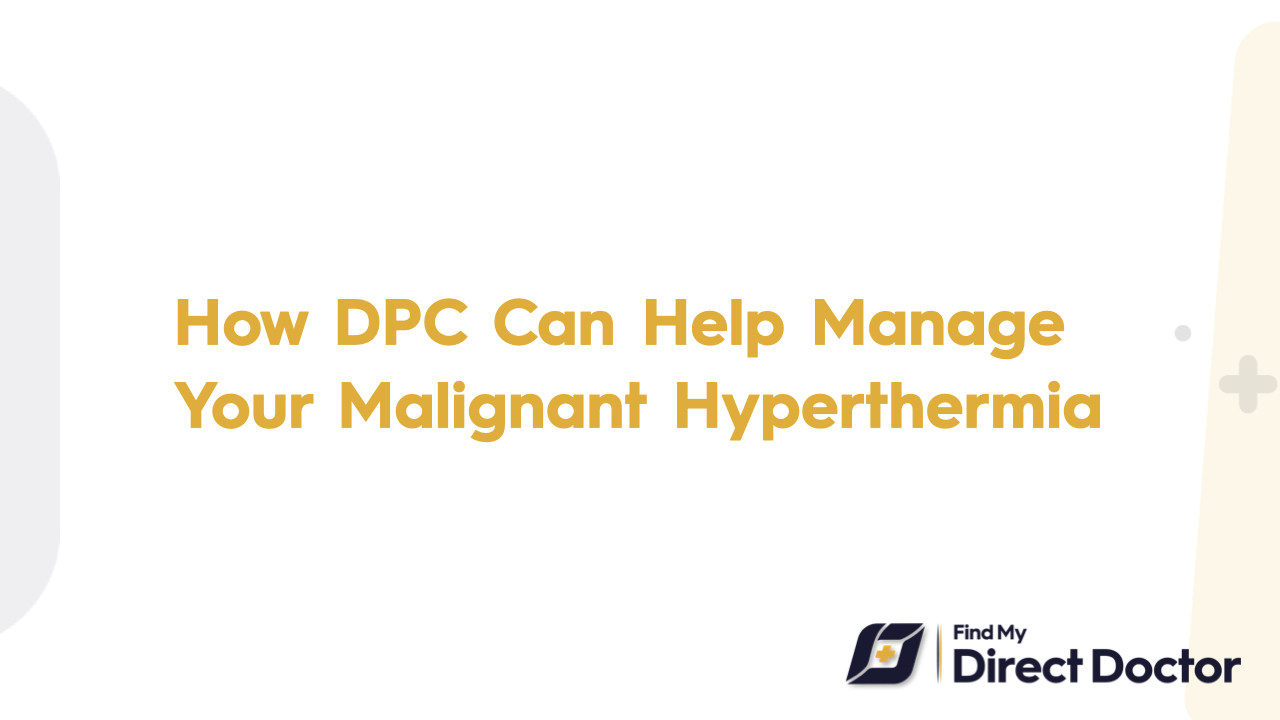



A rare but dangerous genetic disorder known as malignant hyperthermia (MH) can result in a potentially fatal reaction to several anesthetic medications, especially volatile anesthetics and depolarizing muscle relaxants used during surgery. Muscle rigidity, a metabolic crisis, and a sharp rise in body temperature are all symptoms of this illness, which, if left untreated, can result in fatal consequences like organ failure and cardiac arrest. A genetic mutation that alters how muscles react to these anesthetics and makes them hyperactive is the cause of MH.

After being exposed to triggering chemicals, malignant hyperthermia symptoms usually appear minutes to hours later. A sharp increase in body temperature, frequently above 104°F (40°C), is the most typical sign. Severe muscle rigidity, tachycardia (faster heartbeat), hypercapnia (high blood carbon dioxide), dark urine, and irregular blood coagulation are possible additional symptoms. If these symptoms are not identified and addressed right away, they may cause major problems and irreversible organ damage.
By offering ongoing, individualized care and making sure that patients are properly managed medically both before and after any surgical operations, Direct Primary Care (DPC) can be extremely helpful in the management of patients with malignant hyperthermia. DPC provides the chance for comprehensive pre-operative preparation and consultation, even though it might not be able to directly treat acute MH episodes. People with a known history of mental illness can collaborate closely with their DPC provider to create a customized plan that takes into account their unique needs and risks.
Patients with malignant hyperthermia can receive education in a DPC setting regarding their disease, the significance of alerting medical professionals to their sensitivity to specific anesthetic medications, and what to do in the event of an emergency. Additionally, DPC providers can keep a current medical history, including the findings of genetic testing, to notify anesthesiologists and experts about the patient's condition well before any treatment. The likelihood of MH episodes during surgery is decreased by this proactive approach to treatment, which makes sure that patients are ready and shielded from possible triggers.
Compared to conventional healthcare models, DPC provides a more individualized and easily accessible healthcare experience for people suffering with malignant hyperthermia. DPC physicians may devote more time and attention to individual care because they usually have fewer patients, which is especially crucial for people with uncommon diseases like mental health issues. DPC enables continuous monitoring, education, and the development of a customized care plan that puts the patient's safety and wellbeing first through routine appointments.
The improved coordination and communication between primary care physicians, specialists, and surgical teams is another advantage of DPC for patients with malignant hyperthermia. DPC providers may make sure that everyone is completely aware about the patient's medical history, genetic predisposition, and required precautions before conducting any surgical procedures because they have more time and flexibility to coordinate care. The patient has a more seamless and knowledgeable experience as a result, increasing their general safety and lowering the possibility of complications.
Individualized care is the main focus of DPC's personalized management of malignant hyperthermia, which places the patient's particular medical requirements and genetic predispositions at the center of the therapeutic strategy. To develop a personalized strategy, a DPC physician can thoroughly evaluate the patient's medical history, family history, and any prior anesthetic experiences. This could entail scheduling pre-operative assessments, speaking with anesthesiologists, and providing detailed guidance on what triggers to stay away from.
In order to ensure that patients recover safely and without complications, the DPC model also permits close follow-up care following surgery or any other medical intervention. Patients can feel more supported and secure in their healthcare decisions when there are frequent check-ins and open lines of communication. This customized strategy promotes improved care of underlying medical issues, lessens the possibility of negative reactions, and enhances the patient's general wellbeing. DPC provides a thorough, individualized framework for treating malignant hyperthermia in this manner, which eventually enhances patient outcomes and delivers comfort.
Previous Post